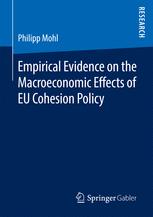

Most ebook files are in PDF format, so you can easily read them using various software such as Foxit Reader or directly on the Google Chrome browser.
Some ebook files are released by publishers in other formats such as .awz, .mobi, .epub, .fb2, etc. You may need to install specific software to read these formats on mobile/PC, such as Calibre.
Please read the tutorial at this link: https://ebookbell.com/faq
We offer FREE conversion to the popular formats you request; however, this may take some time. Therefore, right after payment, please email us, and we will try to provide the service as quickly as possible.
For some exceptional file formats or broken links (if any), please refrain from opening any disputes. Instead, email us first, and we will try to assist within a maximum of 6 hours.
EbookBell Team

4.8
44 reviewsPhilipp Mohl evaluates the macroeconomic effects of EU Cohesion Policy with the help of empirical methods. His findings indicate that in particular the part of EU Cohesion Policy which is spent for the poorest regions (the so-called Objective 1 funding) has a positive and statistically significant impact on economic growth. Moreover, the employment effects of EU Cohesion Policy seem to be conditional on the educational attainment, i.e., in particular regions with a high share of high-skilled population tend to benefit from EU funds. Finally, the author does not find evidence that EU funds significantly increase public investment in the EU countries, which points to a crowding out of national investment. Overall, the gained insights contribute to a more profound understanding of the macroeconomic effects of EU Cohesion Policy, which is essential to design an effective and efficient EU spending system.